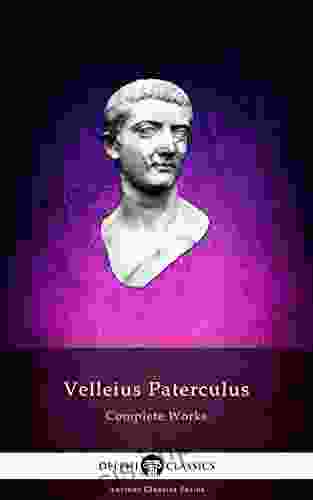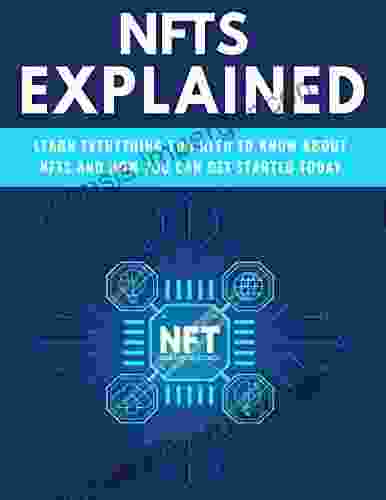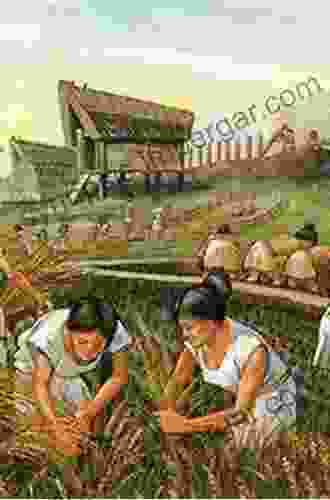Quakers and Their Allies in the Abolitionist Cause (1754-1808): Perspectives on Social Justice and Religious Conviction

The story of the Quakers and their allies in the abolitionist cause is a remarkable tale of courage, compassion, and unwavering determination. From their humble beginnings in the mid-18th century to their pivotal role in shaping the antislavery movement, Quakers played an integral part in the fight for freedom.
Their journey was driven by a deep-seated belief in the equality of all people, regardless of race or origin. Inspired by their religious convictions, Quakers denounced slavery as a morally repugnant practice that violated the fundamental principles of human dignity and justice.
4.6 out of 5
| Language | : | English |
| File size | : | 2180 KB |
| Text-to-Speech | : | Enabled |
| Screen Reader | : | Supported |
| Enhanced typesetting | : | Enabled |
| Word Wise | : | Enabled |
| Print length | : | 200 pages |
| Hardcover | : | 228 pages |
| Item Weight | : | 1.1 pounds |
| Dimensions | : | 6.14 x 0.56 x 9.21 inches |
Quaker Roots and Early Abolitionist Efforts
The Quaker movement emerged in 17th-century England, founded by George Fox, a charismatic preacher who emphasized the importance of inner light and direct communication with God. Quakers believed in the inherent worth of every individual and rejected the hierarchical structures and rituals of traditional organized religion.
Early Quaker abolitionists were inspired by the teachings of William Penn, the founder of Pennsylvania, who condemned slavery as a "wicked practice" and advocated for the humane treatment of enslaved people.
In 1758, Quakers in Philadelphia established the first antislavery society in America, known as the "Committee for the Relief of Negroes Illegally Held in Bondage." This organization provided legal assistance to enslaved individuals and lobbied for the abolition of slavery in the colony.
Key Quaker Abolitionists and Their Contributions
Throughout the 18th and 19th centuries, numerous Quakers dedicated their lives to the fight against slavery. Among the most prominent and influential were:
- John Woolman: A renowned Quaker minister and writer, Woolman traveled extensively, preaching against slavery and urging people to treat all individuals with compassion and respect.
- Anthony Benezet: A Quaker schoolteacher and abolitionist, Benezet published numerous pamphlets and books denouncing slavery and promoting the education of African Americans.
- Granville Sharp: An English Quaker and abolitionist, Sharp played a key role in securing the legal freedom of enslaved Africans in England and successfully argued against the legality of slavery under English law.
- Thomas Clarkson: A British Quaker and abolitionist, Clarkson was instrumental in the formation of the Society for Effecting the Abolition of the Slave Trade and dedicated his life to exposing the horrors of the slave trade and advocating for its abolition.
Women's Contributions to the Abolitionist Movement
Quaker women played an equally significant role in the abolitionist movement, demonstrating exceptional courage and leadership.
- Elizabeth Heyrick: An English Quaker abolitionist, Heyrick was a vocal advocate for the education of African Americans and established schools for them in both England and Sierra Leone.
- Sarah Grubb: A Quaker abolitionist from Ireland, Grubb traveled extensively, speaking out against slavery and establishing schools for enslaved children.
- Hannah More: An English Quaker writer and abolitionist, More authored influential plays and poems that condemned slavery and promoted social justice.
Quaker Influence on Other Abolitionists
The Quakers' unwavering commitment to abolition had a profound impact on other leading abolitionists, including:
- Olaudah Equiano: A freed enslaved African, Equiano became a prominent abolitionist and author, publishing a powerful autobiography that exposed the horrors of the slave trade.
- Frederick Douglass: A renowned abolitionist and orator, Douglass was deeply influenced by the Quaker abolitionist movement and credited Quakers with fostering his commitment to social justice.
Quakers and the Abolition of the Slave Trade
In 1807, the British Parliament passed the Abolition of the Slave Trade Act, which made it illegal to trade in enslaved Africans. Quakers played a pivotal role in the passage of this landmark legislation, lobbying Parliament and mobilizing public support for the abolition of the slave trade.
In the United States, Quakers continued to advocate for the gradual abolition of slavery, working alongside other abolitionists to raise awareness about the evils of slavery and to push for its eventual eradication.
Legacy and Impact
The Quakers' fight against slavery was a testament to the transformative power of conscience and unwavering determination. Their unwavering commitment to justice and equality inspired countless others to join the abolitionist cause and ultimately contributed to the abolition of slavery both in Britain and the United States.
The legacy of the Quakers and their allies in the abolitionist movement continues to inspire activists and advocates around the world, reminding us of the importance of speaking out against injustice and fighting for the rights of all.
The story of Quakers and their allies in the abolitionist cause is a powerful reminder of the transformative power of human action. Driven by their religious convictions and a deep-seated belief in the equality of all people, Quakers played a pivotal role in shaping the antislavery movement, influencing key figures, and inspiring widespread social change.
Their unwavering commitment to justice, compassion, and human dignity serves as an enduring model for all who seek to create a more just and equitable world.
References
- Quakers and Abolition - Swarthmore College
- Society for the Abolition of the Slave Trade - Encyclopedia Britannica
- Abolitionist Movement - History.com
4.6 out of 5
| Language | : | English |
| File size | : | 2180 KB |
| Text-to-Speech | : | Enabled |
| Screen Reader | : | Supported |
| Enhanced typesetting | : | Enabled |
| Word Wise | : | Enabled |
| Print length | : | 200 pages |
| Hardcover | : | 228 pages |
| Item Weight | : | 1.1 pounds |
| Dimensions | : | 6.14 x 0.56 x 9.21 inches |
Do you want to contribute by writing guest posts on this blog?
Please contact us and send us a resume of previous articles that you have written.
 Book
Book Novel
Novel Page
Page Chapter
Chapter Text
Text Story
Story Genre
Genre Reader
Reader Library
Library Paperback
Paperback E-book
E-book Magazine
Magazine Newspaper
Newspaper Paragraph
Paragraph Sentence
Sentence Bookmark
Bookmark Shelf
Shelf Glossary
Glossary Bibliography
Bibliography Foreword
Foreword Preface
Preface Synopsis
Synopsis Annotation
Annotation Footnote
Footnote Manuscript
Manuscript Scroll
Scroll Codex
Codex Tome
Tome Bestseller
Bestseller Classics
Classics Library card
Library card Narrative
Narrative Biography
Biography Autobiography
Autobiography Memoir
Memoir Reference
Reference Encyclopedia
Encyclopedia Dian Jordan
Dian Jordan Lila Rose
Lila Rose Dimitris N Chorafas
Dimitris N Chorafas Denis G Sukhodolsky
Denis G Sukhodolsky Denise Williams
Denise Williams Dean King
Dean King Della Hooke
Della Hooke Laurence Marcellus Larson
Laurence Marcellus Larson David S Nichols
David S Nichols David Pratt
David Pratt Diana Houston
Diana Houston Ryan Troutman
Ryan Troutman Tryambak Chatterjee
Tryambak Chatterjee Deborah Cartmell
Deborah Cartmell Graham Virgo
Graham Virgo Emily Reed
Emily Reed Ted Dracos
Ted Dracos Jesse Mclean
Jesse Mclean K L Sundarkrishnaa
K L Sundarkrishnaa Devi Di Guida
Devi Di Guida
Light bulbAdvertise smarter! Our strategic ad space ensures maximum exposure. Reserve your spot today!

 Simon MitchellDelphi's Complete Works of Velleius Paterculus: Uncovering the Rich Tapestry...
Simon MitchellDelphi's Complete Works of Velleius Paterculus: Uncovering the Rich Tapestry...
 Devon MitchellHeidegger, Klee, and Gadamer on Gesture and Genesis: Unraveling the Interplay...
Devon MitchellHeidegger, Klee, and Gadamer on Gesture and Genesis: Unraveling the Interplay... Norman ButlerFollow ·2.8k
Norman ButlerFollow ·2.8k Terry PratchettFollow ·15.4k
Terry PratchettFollow ·15.4k Camden MitchellFollow ·17.8k
Camden MitchellFollow ·17.8k Maurice ParkerFollow ·2.4k
Maurice ParkerFollow ·2.4k Tennessee WilliamsFollow ·15.8k
Tennessee WilliamsFollow ·15.8k Jesse BellFollow ·12.6k
Jesse BellFollow ·12.6k John KeatsFollow ·13.1k
John KeatsFollow ·13.1k James JoyceFollow ·2.7k
James JoyceFollow ·2.7k

 Ivan Turgenev
Ivan Turgenev38 Art Made During The Pandemic Digitally Enhanced Art...
By [Author's Name] The year 2024 was a time...

 F. Scott Fitzgerald
F. Scott FitzgeraldAmazing Cooking Guide To South Beach Diet: Your Culinary...
Embark on a...

 Zachary Cox
Zachary CoxGeneral History of Chinese Film: A Journey Through Time...
Origins and...

 Cristian Cox
Cristian CoxUnderstanding Antidepressants: An In-Depth Guide to...
Unleashing the Power of...

 Jeremy Cook
Jeremy CookUnlock the NFT Revolution: A Comprehensive Guide for...
The world of Non-Fungible Tokens (NFTs) has...

 Kevin Turner
Kevin TurnerSeneca and Roman Slavery Under Nero's Rule: An In-Depth...
During the reign of...
4.6 out of 5
| Language | : | English |
| File size | : | 2180 KB |
| Text-to-Speech | : | Enabled |
| Screen Reader | : | Supported |
| Enhanced typesetting | : | Enabled |
| Word Wise | : | Enabled |
| Print length | : | 200 pages |
| Hardcover | : | 228 pages |
| Item Weight | : | 1.1 pounds |
| Dimensions | : | 6.14 x 0.56 x 9.21 inches |








